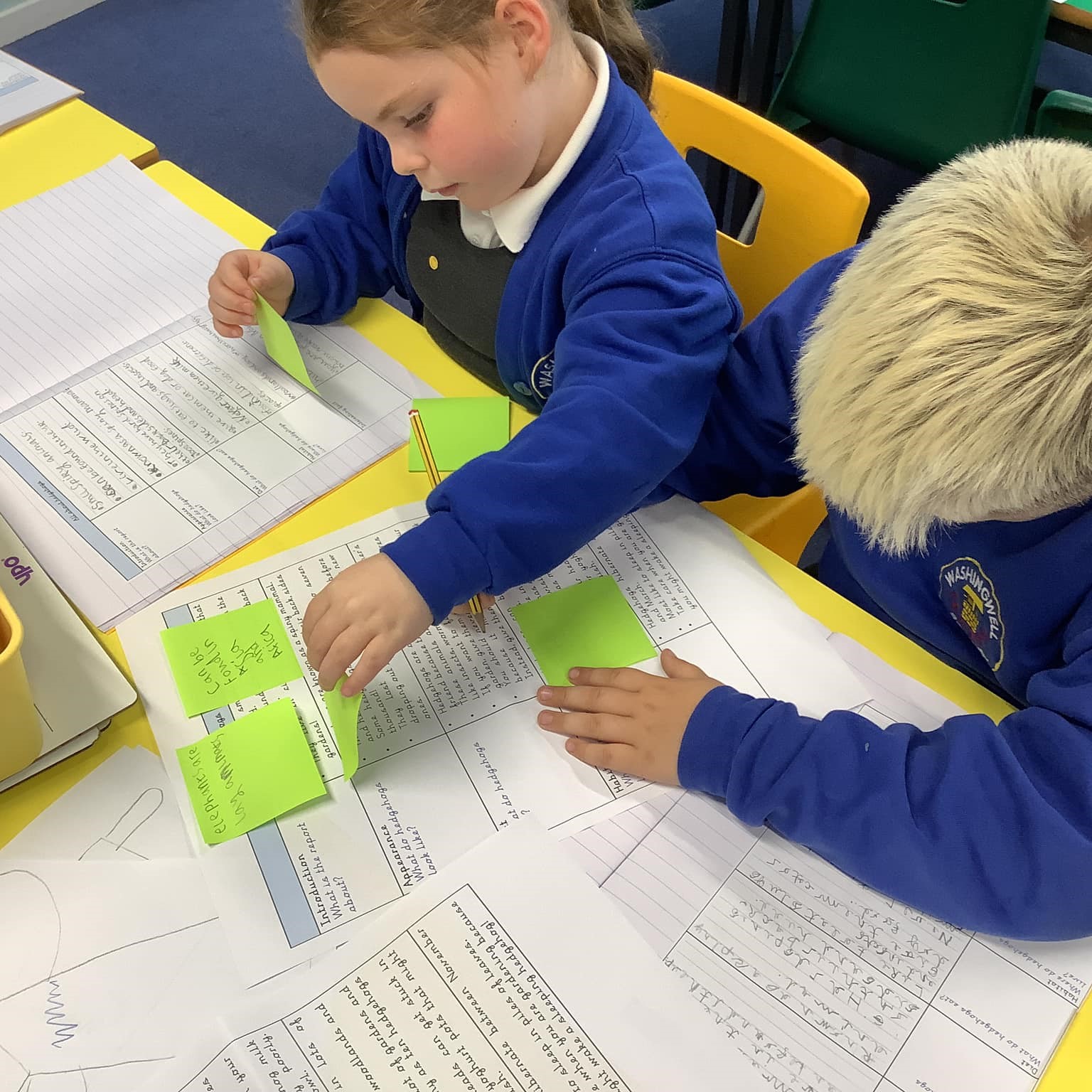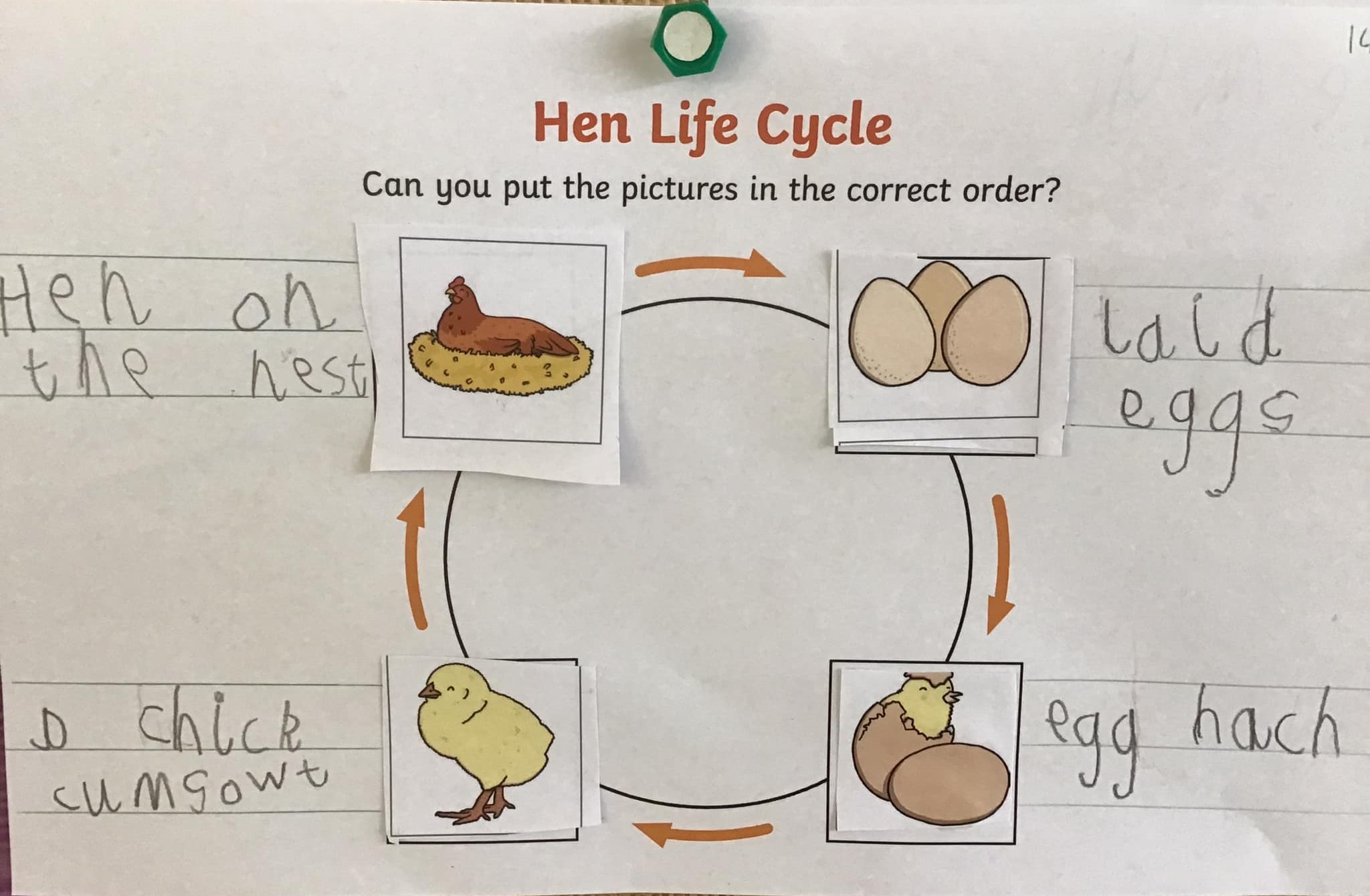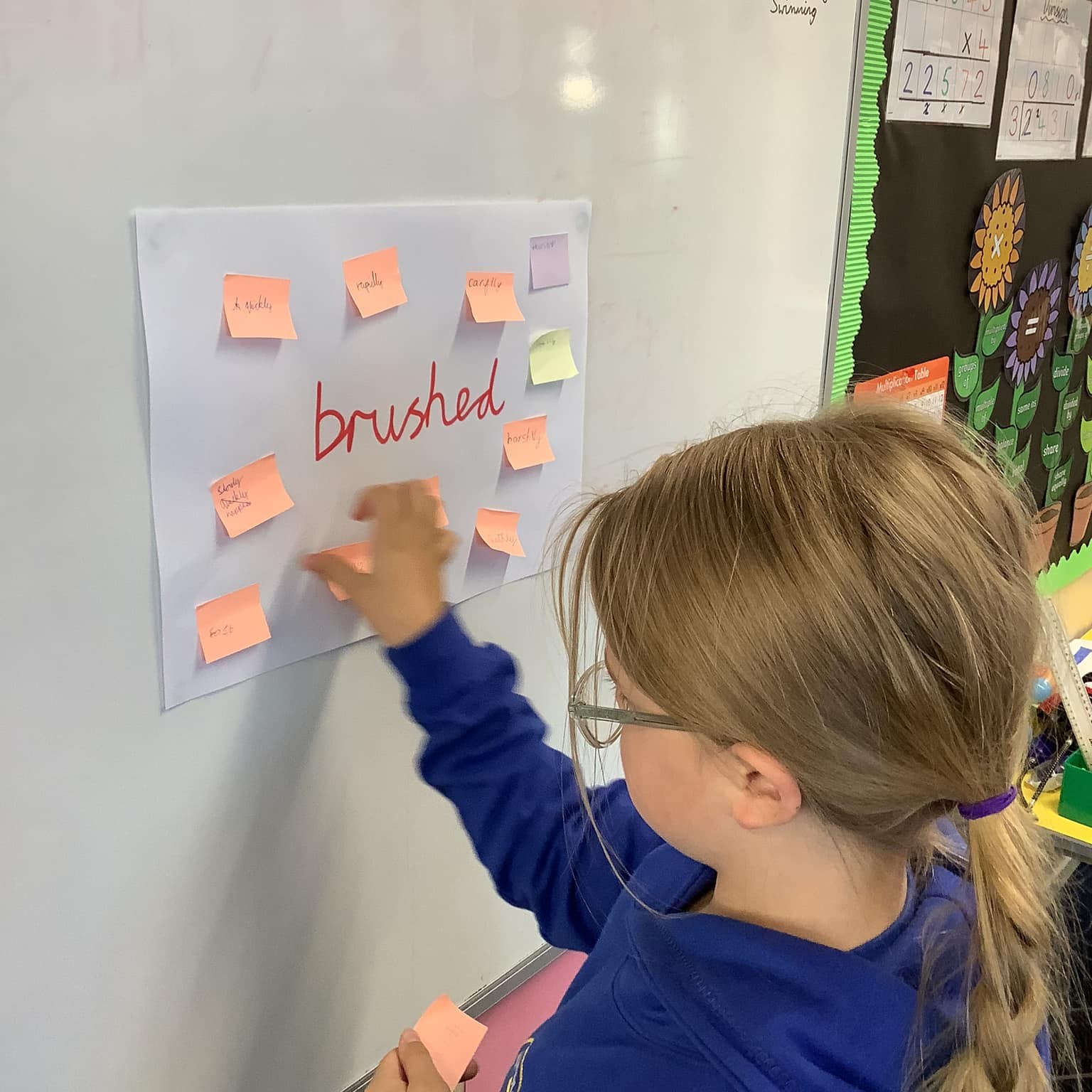English - Writing
Vision Statement:
At Washingwell, we are dedicated to promoting a passion for writing and literacy in every child. Our vision is to create a vibrant and nurturing environment where students develop strong communication skills, creativity, and confidence through the power of written expression. We believe that writing serves many purposes—whether to inform, persuade, entertain, or reflect—and we strive to help our students master a wide range of writing styles. Through engaging and thoughtful instruction, we aim to inspire young writers to express themselves confidently, think deeply, and communicate clearly with diverse audiences. At Washingwell, we nurture a love for writing that will enable our students to excel in school and beyond, preparing them to be articulate, thoughtful, and empowered individuals.
Our school bases the core work in Writing around the National Curriculum, which aims to ensure that all pupils:
- Know the fundamentals of writing, including grammar, punctuation, spelling, and sentence structure, enabling them to write clearly and effectively.
- Have fluency in writing through regular practice and varied writing tasks, helping students write with confidence and ease.
- Are inspired to express their thoughts and ideas creatively through storytelling, poetry, and other forms of imaginative writing.
- Develop their unique writing voice, enabling them to convey their perspectives and experiences effectively.
- Are encouraged to analyse and reflect on their writing and the writing of others, promoting critical thinking and self-assessment.
- Are taught to consider the purpose of their writing and the needs of their intended audience, fostering adaptability in their writing style and content.
- Promote the relationship between reading and writing, encouraging students to read widely and draw inspiration from various texts.
- Are exposed to different writing genres (e.g. narrative, persuasive, informative) and styles to build versatility in their writing skills.
- Have collaborative writing experiences, where students can share their work, give and receive feedback, and learn from one another.
- Develop and encouraged to present their writing verbally, enhancing their overall communication skills.
- Foster a positive attitude towards writing by providing engaging and meaningful writing experiences that motivate students to write for pleasure and purpose.
What does Writing offer children? How does it enhance the curriculum?
- Critical Thinking: Writing helps children think more deeply about topics and organise their thoughts logically. When children write, they are required to analyse information, make connections, and solve problems, which enhances their critical thinking.
- Self-Expression: Writing allows children to articulate their thoughts, emotions, and ideas. It gives them a platform to express their unique perspectives, building self-confidence and independence.
- Effective Communication: Writing equips children with the ability to communicate clearly and effectively, which is essential across all areas of life.
- Imagination and Innovation: Writing encourages creativity and imagination. It allows children to explore new worlds, create stories, and express thoughts that go beyond spoken language, fostering innovative thinking.
- Creative Problem-Solving: Writing tasks that involve storytelling or imaginative scenarios promote creative problem-solving skills, which can be applied to other academic subjects.
- Emotional Expression: Writing offers children a healthy outlet to express their emotions and thoughts, helping them better understand and manage their feelings.
- Empathy and Perspective-Taking: Writing narratives or creative pieces can help children step into the shoes of others, fostering empathy and an understanding of diverse perspectives.
- Enhanced Reading Skills: Writing and reading are closely linked. Writing helps children better understand sentence structure, grammar, and vocabulary, which in turn improves their reading comprehension.
- Integration with Other Subjects: Writing enhances the curriculum by connecting with subjects like science, history, and mathematics.
- Structured Thinking: Writing teaches children how to organise their thoughts logically and sequentially.
- Attention to Detail: Writing tasks often require careful editing and revision, fostering attention to detail, discipline, and perseverance.
- Academic and Professional Success: Writing is a skill that transcends school. It is fundamental for success in higher education and future careers.
What use is it to children in later life?
- Writing equips children with essential skills for later life, including clear communication, critical thinking, and problem-solving. It supports career advancement through strong job applications and leadership, fosters creativity and innovation, and empowers individuals to express themselves and advocate for causes.
Writing at Washingwell
EYFS
Starting in Nursery, children will be encouraged to practice making the pre-writing shapes, before learning how to form letters correctly in Reception. They will use their knowledge of phonics to spell phonetically-plausible words and to string words together into short phrases and sentences, which can be read by themselves and others.
Talk for Writing
Our English lessons are supported by the Talk for Writing approach, a programme developed by Pie Corbett. The aim is to develop imaginative, creative and effective writers, who are able to independently write for a variety of audiences and purposes. Throughout the year the children will cover non-fiction, fiction and poetry texts.
Talk for Writing enables children to imitate the key language they need, before they try reading and analysing it. Through fun activities that help them rehearse the tune of the language they need, followed by shared writing to show them how to craft their writing, children are helped to write in the same style. A key feature of Talk for Writing in KS1, is that children internalise the language structures needed to write through ‘talking the text’ as well as close reading to analyse it. The approach moves from dependence towards independence, with the teacher using shared and guided teaching to develop the ability in children to write creatively and powerfully.
At Washingwell, we enjoy how Pie Corbett uses fictional themes for non-fiction writing, so that the focus is on the vocabulary, structure and layout rather than focusing solely on facts. We use this well to engage children, with different styles of writing and with different purposes.
Writing Toolkit
We implement the use of our 'Writing Toolkits' from Year 2 - 6. This is a planning tool, which we create collaboratively with our pupils, to identify our purpose for writing, audience, effect, skills, application and appropriate vocabulary. This allows our children to take responsibility for the creativity of their writing.
Model Examples
All our creative writing pieces begin with a high-quality model example, which models the purpose, audience, effect, skills, application, and appropriate vocabulary. This sets high expectations and aspirations for our children, which is at the heart of our school ethos.
Spelling
t Washingwell, once the children have completed the Unlocking Letters and Sounds phonic scheme, we use Spelling Shed to support the teaching of spelling.
Each child is given an individual login where they can access Spelling Shed online and practise their spellings at home. Please see the ‘Spelling Shed Medium Term Plan’ document for more information.
Handwriting
Letter-join is the scheme used to teach handwriting. Using the scheme ensures consistency of approach throughout school and ensures children practise the same style throughout their time at Washingwell in order that they leave school with a legible, cursive style of writing which is fluent. Please see the ‘Letter-Join Progression’ document for more information.



